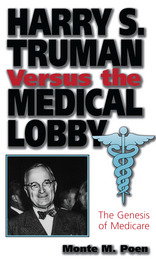Cloth: 978-0-674-40675-9
Library of Congress Classification HD7102.U4F44
Dewey Decimal Classification 368.38200973
The cost of hospital care has grown so rapidly in the past thirty years that it is threatening to bend our economy completely out of shape. A hospital bed that cost $16 per day in 1950 cost $214 per day by 1978—an increase of more than 1200 per cent! What is the cause of this fantastic inflation, which has been far higher than for any other major good or service? In this pathbreaking book, Martin Feldstein sets forth a novel explanation, provides empirical support for it, and suggests some remedies for the problem.
Feldstein demonstrates a complex relationship between the growing sophistication of hospital care, physician and patient demand, third-party insurance payments, and the tax treatment of insurance premiums. This last, he argues, is the key to the problem in that government policies stimulate the purchase of excessive insurance by a tax deduction and exclusion that cost the Treasury about $10 billion a year. To mitigate the increasingly severe burden of hospital costs, Feldstein recommends that this preferential tax treatment be ended. In its place, he proposes a new national health insurance plan that would give incentives to physicians and their patients to economize on costs and at the same time provide adequate coverage for major illnesses.
See other books on: Feldstein, Martin | Health insurance | Hospital Costs | Hospitals | Rates
See other titles from Harvard University Press
























